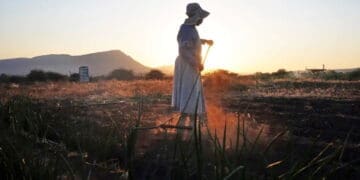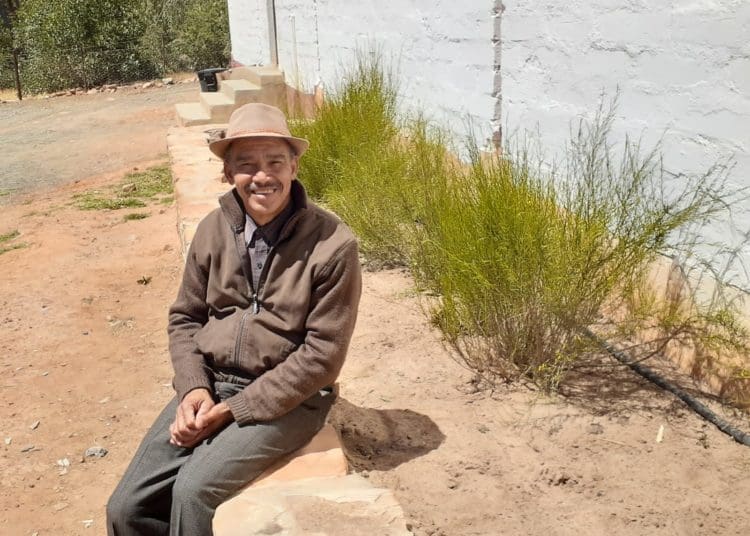As a young boy in Cederberg known as the rooibos capital of the world, the famous tea was all Barend Salomo knew and he loved it with his essence.
Both his father and grandfather were involved in the cultivation of rooibos, but neither of them owned the land that they nurtured and worked, much like the wine labourers of the Stellenbosch region.
Born and raised in the tranquil and peaceful town of Wupperthal, Cederberg in the Western Cape, young and ambitious Salomo decided to pursue a future in agriculture, specifically rooibos cultivation just as his ancestors had done before him.
The love and knowledge of rooibos has been passed down from generation to generation like valuable jewels. Salomo lovingly gives an anecdote of the role rooibos played in his childhood. “Rooibos was used for everything even as a substitute for breast milk, if a mother gave birth to a new baby while the other child was still breast-feeding the child would just be given rooibos which is just as nutritious as breast,” he explained.
Last year the National Khoi-san Council, the San Council of South Africa and the South African Rooibos Council and the department of environment, forestry and fisheries signed a historic Industry-wide Benefit Sharing Agreement (BSA) for traditional knowledge associated with Rooibos.
The agreement came nearly a decade after the lengthy battle of negotiations process between the department and representatives from the Khoi and San organisations were initiated. The Khoi and San had been demanding that the 100-year-old rooibos industry recognise the role that their traditional knowledge played in its development.
This was after the industry had refuted claims that there was no sufficient evidence that they hold traditional knowledge of Rooibos tea and that it would not be entering into a benefit-sharing agreement.
Salomo stated that there has been a huge effort to get more indigenous people to run and own their own farming businesses, but the government cannot intervene in most land-related issues since the land was mostly owned by the church.
The colonial legacy still sweeps through the valley like a dark hand. The eastern part of the slope where Salomo and his compatriots found themselves, thanks to various laws during the colonial and apartheid era, was far less arable and lush than their wealthy, white western slope dwelling counterparts, who had a significant advantage.
The rooibos and agriculture industry is still largely divided on who gets a bigger piece of the pie. All Salomo has ever known was the rolling hills, harsh sun and nature surrounding the Cederberg valley yet in his first attempt to monetise his skill and love for rooibos, his only option was to lease the land from the Monrovian church, which owns all the land on the eastern slopes, where he and many descendants of Khoi people grew up.
“Rooibos is in our blood, it’s all we’ve ever known and we have a special connection to the land,” Salomo said despite the challenges.
“Everything we use from start to end is organic because we respect the land and we know that we need to take care of it so future generations can benefit,” Salomo added.
There is however still much work to be done to ensure a level playing field for all smallholding
farmers to have a chance to make their mark in the agricultural world. – Mukurukuru Media































































